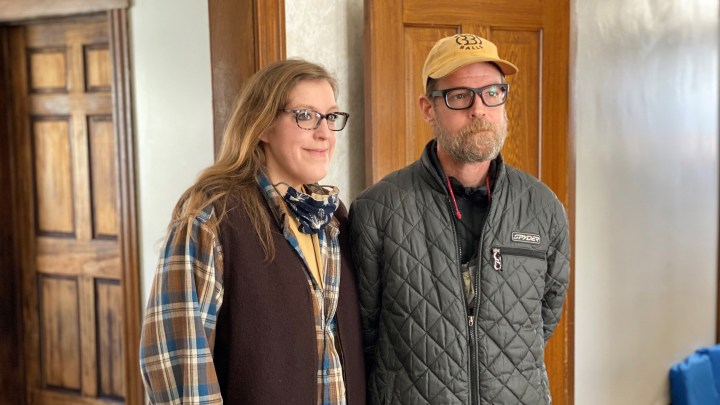
Medical respite provides a place for unhoused people to land after a hospital stay
Medical respite provides a place for unhoused people to land after a hospital stay

Imagine being ready to leave the hospital after a heart attack or a major surgery but having no home to go to finish recovering. That’s a reality that Kate Bradley often saw firsthand when she lived and volunteered at a Duluth shelter.
“Folks would get a cab voucher from one of the hospitals and show up with drainage tubes hanging off of them,” Bradley said, “saying, ‘The hospital said you’d have a place for me.’”
Bradley now lives in a new home in Duluth called the Bob Tavani House for Medical Respite, which provides a place for people experiencing homelessness who are too ill or frail to recover from an illness or injury on the street or in a shelter but who no longer require care at a hospital.
It’s part of a growing network of medical respite centers that now numbers more than 130 around the country — including four in Minnesota. More than half have opened in just the past 10 years, with a goal of disrupting what is often a sad cycle.
“Where, because homelessness is often driving the disease state in the first place, people get better in the hospital, they’re discharged back into homelessness, right back into the conditions that lead to worsened health,” said Dr. Jamie Conniff. “And a few days or weeks or months later, they are ill again, and need hospitalization.”
Conniff is a family physician in Duluth and a faculty member at the Family Medicine Residency program, where two former residents first came up with the idea for the Bob Tavani House.
The home opened in the summer of 2018 and was a donation from the First Covenant Church next door. Bradley is one of two volunteers who live in the house, which provides a warm bed to up to three guests at a time, offers family-style meals and helps them connect with housing and other services when they’re ready to leave.
“We are people, for people who need people,” Bradley said.
Medical respite centers like the Bob Tavani House were started to help people in the community. But in this case, what’s good for people has also proven to be good for the bottom line.

“We know that people experiencing homelessness often stay in the hospital up to 4.1 days longer than they really need to be in the hospital,” said Julia Dobbins, director of medical respite at the National Health Care for the Homeless Council.
At roughly $2,000 a day for a hospital bed, “that’s very expensive for the system,” she said.
That’s why many health care systems around the country are starting to invest in medical respite centers. But in Duluth, the Bob Tavani House is powered by volunteers, some grants and lots of donations of meals, coffee and toilet paper. The house’s annual budget is only $13,500.
The nonprofit is now working to put itself on a more solid financial footing.
“You know, life happens,” said Board Chair Tony Olson. “And you never want just one thing going wrong to make a valuable service like this for people in the community to go away. So we’re really focused on making sure that we can be sustainable.”
There’s a lot happening in the world. Through it all, Marketplace is here for you.
You rely on Marketplace to break down the world’s events and tell you how it affects you in a fact-based, approachable way. We rely on your financial support to keep making that possible.
Your donation today powers the independent journalism that you rely on. For just $5/month, you can help sustain Marketplace so we can keep reporting on the things that matter to you.











